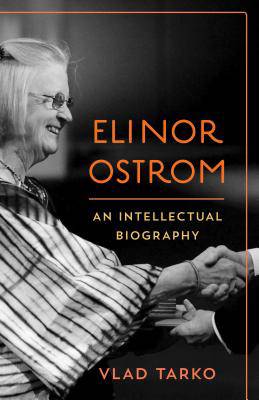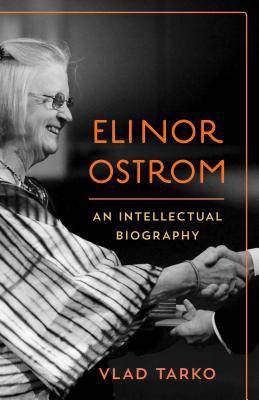
En raison d'une grêve chez bpost, votre commande pourrait être retardée. Vous avez besoin d’un livre rapidement ? Nos magasins vous accueillent à bras ouverts !
- Retrait gratuit dans votre magasin Club
- 7.000.000 titres dans notre catalogue
- Payer en toute sécurité
- Toujours un magasin près de chez vous
En raison de la grêve chez bpost, votre commande pourrait être retardée. Vous avez besoin d’un livre rapidement ? Nos magasins vous accueillent à bras ouverts !
- Retrait gratuit dans votre magasin Club
- 7.000.0000 titres dans notre catalogue
- Payer en toute sécurité
- Toujours un magasin près de chez vous
79,95 €
+ 159 points
Format
Description
Elinor Ostrom was the first woman to win the Nobel Prize in economics. She has been at the forefront of New Institutional Economics and Public Choice revolutions, discovering surprising ways in which communities around the world have succeed in solving difficult collective problems. She first rose to prominence by studying the police in metropolitan areas in the United States, and showing that, contrary to the prevailing view at the time, community policing and smaller departments worked better than centralized and large police departments. Together with her husband, Vincent, they have set up the Bloomington Workshop in Political Theory and Policy Analysis, which has grown into a global network of scholars and practitioners. Throughout her career, she was interested in studying ecological problems, and understanding how people manage communal properties. Her most famous discovery is that communities often find ingenious ways of escaping the "tragedy of the commons". Analysing a wide-variety of successes and failures, and working together with many other scholars, she was able to uncover a series of institutional "design principles" a set of criteria which, if followed, societies are more likely to be productive and resilient to shocks. Some of her most important theoretical insights, about polycentricity and institutional evolution, arose from this synthesizing effort. Furthermore, this led her to develop a framework for the study of the relationship between societies and their natural environment which brought institutional insights into the field of environmental studies.
Spécifications
Parties prenantes
- Auteur(s) :
- Editeur:
Contenu
- Nombre de pages :
- 202
- Langue:
- Anglais
Caractéristiques
- EAN:
- 9781783485895
- Date de parution :
- 15-12-16
- Format:
- Livre broché
- Format numérique:
- Trade paperback (VS)
- Dimensions :
- 135 mm x 213 mm
- Poids :
- 249 g

Les avis
Nous publions uniquement les avis qui respectent les conditions requises. Consultez nos conditions pour les avis.






